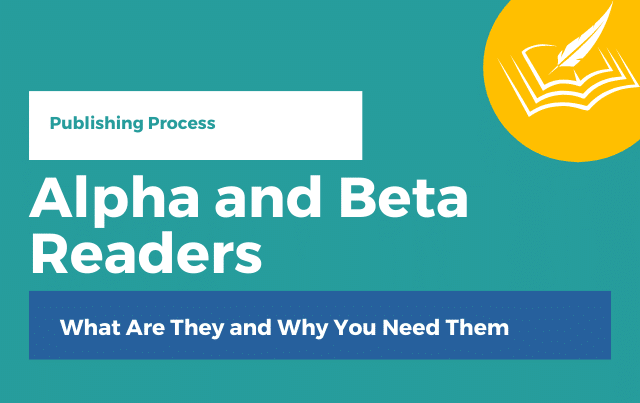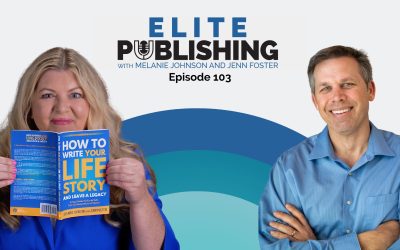Alpha and Beta Readers: What Are They and Why You Need Them
Unbeknownst to the general public, beta readers are not unpaid editors, but serve a key purpose in the writing process nonetheless.
‘Beta reader’ may not be a term that you’re familiar with, but many writers have probably enlisted the help of one. It’s probably true that almost every writer has had an alpha reader. If you’ve ever participated in a workshop (maybe in undergrad and grad school), then you’ve had them. The terms may not be familiar, but their roles are necessary to take a rough draft and shape it into a finished work.
The Difference Between Alpha and Beta Readers
Just like A comes before B, alpha readers see a draft before a beta reader. After you’ve gotten your words down in a draft and done some self-editing, you want to show your hard work to someone you trust for general feedback. An alpha reader is that first person you share with in the Book Publishing Process.
Alphas should approach your work as a writer-reader—someone to help you find the holes and disjointed edges.
While they can point out obvious typos, they should not be looking at sentence structure or commas—they should be looking at the big picture. What’s working? What feels weak? What makes sense in your head but doesn’t translate to the page? Alphas help you find the major points to strengthen, and the weak points that may not need to be there.
After you’ve talked with your alpha reader, take some time to consider their feedback and make revisions. Your alphas should be people you trust so you can take their comments seriously, but remember that you are the author and have the final say. If your alpha says to make a drastic change that goes against your gut, consider working around that issue to strengthen it. Listen to your readers, but go with your author instincts and tell your story.
Like alpha readers, beta readers are also looking at the big picture, but they approach the work as casual readers.
While they can be fellow writers, you’re looking for people to read your work as an average reader, not as if they were writing the book themselves or analyzing your crafting. They should come to the text blindly. You’ll want to ask these people what they liked and what they didn’t (thick skin, people. Constructive criticism is a must in writing, even if it hurts to hear it sometimes).
Who Needs Beta and Alpha Readers?
Here’s the truth: great writers had help. T.S. Eliot and Ezra Pound shared their writing with each other. Hemmingway, F. Scott Fitzgerald, and Gertrude Stein read each other’s work. And you’ll find a similar circle in most any MFA program. We need people who don’t live in the story to experience it fresh and tell us what they see on the page. It’s the only way to know if what you’re trying to achieve is actually working.
Some of our best ideas aren’t in our head when we first begin—it’s only by bouncing off others that we gain momentum and find that perfect metaphor or the key detail to the plot buildup that makes everything fit together.
Alpha and beta readers are the ones to run ideas by and discuss problem areas. They’re the ones who are going to be honest and tell you what they see so you can match it up with what you want them to see.
While sitting at your desk typing on your keyboard or writing in a journal is a solitary action, the writing process doesn’t have to be.
Where do I find one of these readers?
If you really want to, you can buy them. People freelance as alpha and beta readers just like they freelance editing or critiquing. You can find talented readers on fiverr.com, or somewhere like Writerful Books. These will most likely be strangers that are very serious about the work because it’s their job.
However, you don’t have to pay someone to read your work. You can choose to ask friends or family to be alpha or beta readers. The only drawback with this route is that these people are less likely to honestly criticize because they don’t want to hurt your feelings. While kind, this attitude won’t help your writing. In addition, they aren’t professionals, and their advice is going to be sub-par. They’re bound to miss things.
A middle ground would be to find writers with whom you resonate. If there isn’t a group in your city, start one! Writers live everywhere, and if you create a group you’ll likely have some interest. There are also groups on Facebook and other social media sites. Personally, I like getting together with a group to workshop, possibly with an adult beverage. I prefer the dialog of face to face, but if that’s not your style, you can certainly take it online.
Also, sometimes you need new eyes. Maybe you had a certain group for one piece, but you want a different group for another. Sometimes, your preferred readers may not be the best for a new type of work. Be flexible in choosing your readers.
Finally, keep in mind that you don’t have to keep going back to someone who directly opposes your style. You want people who will criticize your work constructively—not someone who makes you feel like your writing is terrible. All writers can stand to grow, so choose people who lift you up and make you and your writing better.
Moving Forward with your Alpha and Beta Readers
Now that you can define alpha and beta readers and use the terms in everyday conversation with your writer friends, we hope you find some that you trust to review your manuscript/piece/work. The more you work with alpha and beta readers, the more you’ll learn what questions to ask them. Remember, you don’t want to tell them what you were trying to do—they should be able to see that for themselves on the page. If they can’t then learn to ask the right questions so that next read, they’ll see it.
For funzies, I’ll include some of our go-to questions for you:
For Alpha Readers
- What did you think I was going for?
- Did you have any questions once you’d read it?
- What’s working here?
- What’s not working for you?
For Beta Readers
- What kind of tone did the piece have?
- How did you feel reading it?
- Did the ending make sense? Did it feel right?
- When did you start caring / when did the piece grab your attention?
- Did you have any questions once you’d read it? (I ask this of beta’s too because their perspective is a little different)
Learn more about the publishing process from our latest blogs here!




0 Comments